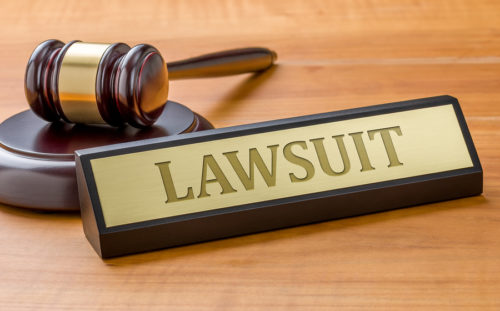
How To Know if Belviq Injured You
In February 2020, pharmaceutical manufacturer Eisai, Inc. withdrew its weight-management drug Belviq (generic name lorcaserin) from the U.S. market at the request of the United States Food and Drug Administration (FDA) after a clinical trial identified an increased occurrence of cancer in people who took it. This extraordinary step reflects the FDA’s judgment that the potential risk of cancer outweighs the benefits of taking Belviq.
If you take Belviq, stop immediately and consult your doctor.
News of the withdrawal has struck fear in the heart of anyone who has taken Belviq since it became available for doctors to prescribe to patients in the U.S. in mid-2013. Many wonder how they can know if Belviq injured them. In this blog post, we cover important information to understand about Belviq and the reasons the FDA requested its withdrawal from the marketplace. If you have specific questions about how taking Belviq (lorcaserin) may have injured you, contact an experienced Belviq injury attorney today.
About Belviq
Belviq is the brand name for a drug called lorcaserin. It was originally developed and manufactured by California-based Arena Pharmaceuticals, Inc., which obtained approval to sell the drug from the FDA in 2012, and brought it to market in mid-2013. In 2017, a Japanese drug manufacturer, Eisai, acquired all of Arena’s rights to develop and market Belviq worldwide.
Belviq was marketed as a weight-management drug for patients who were clinically obese, or who were overweight and had at least one other weight-related health condition. It acted to suppress a patient’s appetite and aimed to assist with a patient’s chronic weight-management plan in conjunction with a reduced-calorie diet and increased physical exercise.
The drug’s supposed benefit was that it would promote faster weight loss than diet and exercise alone, and patients could lose about 5 percent of their weight within the first three months of using it if they also stuck to their exercise and diet plan. The idea was for Belviq to help people with chronic weight problems to kick-start their weight loss journey, which was a worthwhile goal given the myriad harmful health effects of excess weight (such as heart disease, diabetes, and stroke).
Belviq Cancer Findings Prompt Withdrawal from Market
In connection with approving Belviq in 2012, the FDA required Belviq’s manufacturers to conduct a randomized, double-blind, placebo-controlled clinical trial to evaluate the risk of cardiovascular problems associated with taking the drug.
Upon completion of the five-year study of 12,000 patients (which ended in 2018) the FDA reviewed data from the trial and discovered not a cardiovascular risk, but instead a cancer risk. Specifically, the data showed that people who took Belviq were more likely to get a variety of cancers (including pancreatic, lung, and colorectal) and that their risk increased the longer they continued taking the drug.
It was an alarming and tragic finding. Patients and doctors trusted Belviq as a safe tool for helping people manage their weight and improve their lives. Troublingly, the FDA discovered the risk only through a study intended to evaluate a totally different risk (which was found not to exist). In withdrawing the drug from the market, Eisai continued to insist that Belviq’s potential benefits outweigh the risks of cancer. The FDA vehemently disagreed, and instructed patients to stop taking Belviq and to dispose of any remaining pills, and doctors to stop prescribing it and to work with patients to find alternative weight loss remedies.
Cancer Symptoms Potentially Related to Belviq Use
If you took Belviq as part of a weight management plan, you might understandably feel concerned right now about your cancer risks. Cancer symptoms vary by type and by patient, so your best course of action for evaluating those risks is always to consult with your doctor. We are not physicians and you should not rely on this article for medical advice.
Generally speaking (according to trusted sources of medical information identified below) symptoms the three types of cancer identified in the FDA’s analysis of the Belviq clinical trial include:
Lung Cancer
According to USC Norris Comprehensive Cancer Center, lung cancer does not often exhibit symptoms at its early stages.
Symptoms that may appear when the cancer has advanced may include:
- Chest pain
- Coughing up blood, even a small amount
- Coughing up phlegm
- Hoarseness
- Persistent cough
- Recurrent pneumonia or bronchitis
- Shortness of breath
- Voice change
- Weight loss
- Wheezing
Pancreatic Cancer
According to the American Cancer Society, much like lung cancer, pancreatic cancer rarely shows early warning signs.
Symptoms that may appear at a more advanced stage of this cancer may include:
- Jaundice
- Belly or back pain
- Weight loss and poor appetite
- Nausea and vomiting
- Gallbladder or liver enlargement
- Blood clots
- Diabetes
Colorectal Cancer
USC Norris also advises that colorectal cancer frequently goes unnoticed at its early stages, but that when it has advanced it may show signs that include:
- Abdominal discomfort (frequent gas, bloating, fullness, cramps, and pain)
- Blood in the stool
- Changes in bowel habits
- Fatigue
- Feeling that the bowel will not empty completely
- Pain with bowel movement
- Problems related to blood loss (anemia, weakness, shortness of breath, pounding heart, chest pain and intolerance to exercise)
- Unexplained weight loss
Speak with your doctor right away if you have previously taken Belviq and experience any of the potential cancer symptoms above.
Legal Rights of Those Harmed by Belviq
We repeat: the first thing to do if you take Belviq is to stop taking it immediately. No matter when you stopped taking Belviq, speak with your doctor as soon as possible about any potential health risks and alternative weight management plans.
After you have addressed those immediate health-related needs, we encourage you to speak with an experienced defective drug injury attorney. If you have been diagnosed with cancer after taking Belviq, you may be entitled to take legal action for damages.
Drug Makers Have Legal Liability for Dangerous Drugs
Like any producer of goods consumed by the public, pharmaceutical manufacturers have an obligation not to sell unreasonably dangerous drugs. Unlike many other producers, however, drug companies also must follow a strict process for obtaining approval from the FDA to produce and sell a medicine in the United States, and when the medicine requires a prescription, manufacturers must rely on doctors to put it in a patient’s hands.
The FDA approval process and the ability of doctors to help patients make decisions about what medicines to take gives pharmaceutical makers some cover when someone claims taking a drug caused them harm.
But it does not give them a free pass. Drug companies still must warn doctors and, increasingly, the general public (in those drug ads that clog the airwaves) about dangers associated with consuming their new miracle medicine. Manufacturers who fail to give those warnings (or who, in rarer cases, mistakenly sell contaminated products) face potential legal liability to the people their products harm.
Victims Can Seek Damages
Victims of a drug manufacturer’s sale of an unreasonably dangerous drug have the right to seek compensation for the harm the drug caused.
The type and amount of compensation a person might receive may depend on a variety of factors, including:
- Their current health condition, including whether they have experienced any of the harmful outcomes known to be associated with the drug;
- The duration that they took the drug;
- Their overall state of health and the reasons for which they took the drug; and
- Their age.
If taking a particularly dangerous drug led to a specific negative health outcome, patients damaged by the drug may take legal action to recover a wide variety of damages. The compensation they may obtain by filing a lawsuit against the drug manufacturer, for instance, could pay for the cost of their medical care, any wages or income they lost because of the harm they suffered from taking the drug, and potentially significant damages for pain, suffering, and diminished quality of life.
For many patients, however, the immediate harm done when a drug is withdrawn from the market, as in the case of Belviq, is that they just don’t know how badly they may have been injured. That not knowing is its own kind of harm, and inflicts its own physical, emotional, and financial costs on frightened patients and their families.
Fortunately, this (often much larger) group of patients may also have the right to take legal action to seek compensation for the harm done to them by taking a defective drug. Frequently, many patients injured by a single drug file claims against manufacturers of dangerous drugs, resulting in what is called a mass tort. In mass torts, multiple civil cases that share a common issue of fact – such as dangerous drug or medical devices- can be coordinated before one federal or state court. Injured patients that become plaintiffs involved in a mass tort may seek a variety of remedies, including financial compensation, ongoing health monitoring, and a mechanism to make further claims if they suffer a negative health outcome in the future.
In other words, if you took Belviq, you may have legal rights, whether or not you have received a diagnosis for one of the three types of cancer identified by the FDA’s review of the clinical trial described above. Speak with an experienced defective drug injury attorney today to learn more.
Used to Take Belviq? Here’s What You Can Do Now.
As someone who previously took Belviq, you can take steps to protect your health, well-being, and legal rights.
First, STOP taking Belviq and consult your doctor immediately, if you have not already done so. This is, far and away, the single most important thing you can do. The FDA has declared that taking Belviq poses an unacceptably high risk of causing deadly cancer.
Second, dig up and hold onto all of the records you have of taking Belviq. These days, most doctors keep electronic records of prescriptions they have written for medication. Ask your doctor for a copy of those. If you have receipts or other documents from the pharmacy where you filled your Belviq prescription, or even empty pill bottles, keep those as well. Your pharmacy likely also keeps its own record of prescriptions you have filled, so request a copy of those records
You may also have received documentation from your insurance plan about the medical care you received associated with taking Belviq. Keep that, too. In other words, try to put your hands on every scrap of information you can find that documents having filled prescriptions for and taken Belviq. Also, obviously, if you have received care for a cancer condition after taking Belviq, keep all records of that care, too.
Third, contact an experienced defective drug injury attorney right away, whether or not you know you have suffered a negative health outcome from taking Belviq. You may have important legal rights to compensation.
A skilled attorney can often:
- Review and evaluate the records you have of taking Belviq, and help you obtain any additional records or documentation necessary to make a potential claim;
- Advise you whether you may have a right to recover damages through an individual lawsuit, or whether to join a class action lawsuit;
- Speak as your representative in any communications with insurance companies or defense attorneys concerning your history of taking Belviq and any negative health outcomes you suffered; and
- Prepare, file, and litigate any legal action you choose to take as a potential victim of the apparent harms of Belviq.
No lawyer can guarantee any particular legal or financial outcome for you in connection with you taking Belviq. The withdrawal of Belviq from the marketplace, and the release of alarming information about the drug’s apparent connection to developing deadly cancers, has only recently occurred. As a result, the scope of potential remedies and compensation available remains undetermined, and as we mentioned above, different patients may find themselves in different situations, health-wise.
However, regardless of your health status, the sooner you act, the better your chances of protecting your well-being and legal rights from any fallout from taking Belviq. So, do not wait. Contact an experienced dangerous drug injury lawyer today.







